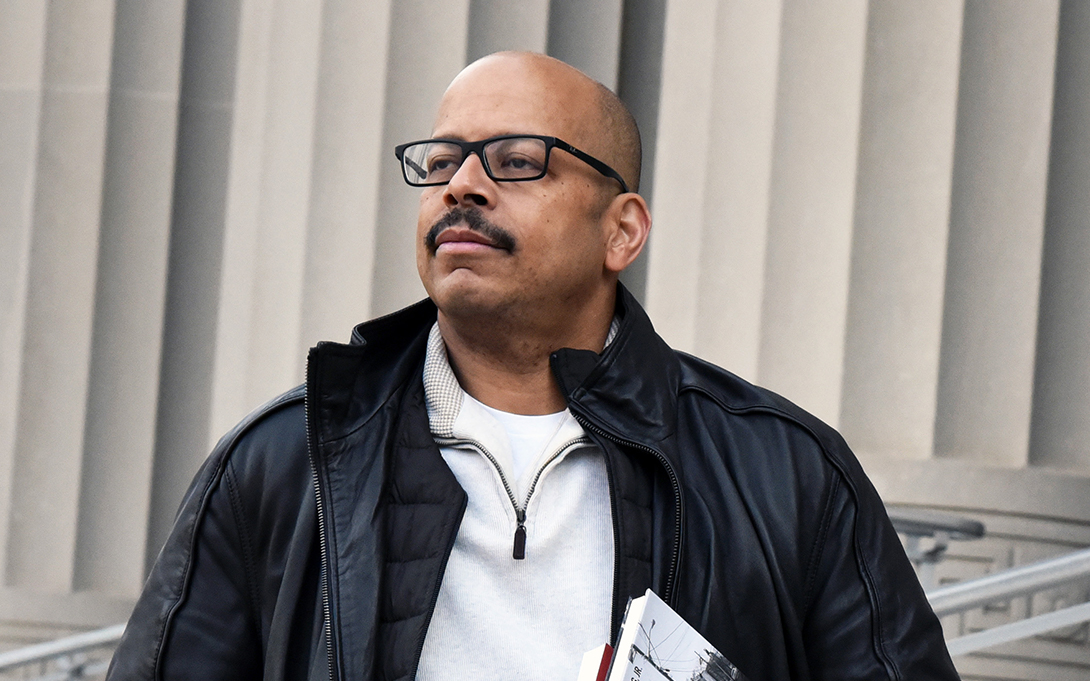
The Ford School is delighted to announce that a number of faculty members will join our community this fall. To introduce them to the Ford School community, we’re running weekly Q&As throughout the summer that touch on their policy and personal interests alike.
Here’s Alford A. Young, Arthur F. Thurnau Professor of Sociology, chair of the Department of Sociology, and now a courtesy professor at the Ford School, on Black men as practical theorists of the social world, frustrating notions about fatherhood (now, thankfully, largely abandoned), his secret to success, the perfect day, and more.
Q: What do you study, and why?
Young: I grew intrigued by the situation of African American men in the 1980s and wanted to study them. I thought a crisis was on the horizon.
Q. Describe your approach?
Young: My first book, The Minds of Marginalized Black Men: Making Sense of Mobility, Opportunity, and Future Life Chances (Princeton University Press 2004) involves an approach that is still central to my work. I move from looking at the behavior of Black men (a common point of attention for many cultural sociologists) to norms and values (which are commonly deduced from such behavior) to how men construct meaning about various aspects of the social world (what is a good job, whether racial equality is a viable outcome in American society, what role does belief in a higher being have on one’s sense of life chances, etc.).
The objective in looking at such seemingly mundane questions is to show Black men as practical theorists of the social world and of their own existence in it. Situating men in such a way highlights their complexity, and is a marked contrast between studies that focus on their presumably flawed behaviors, norms, and values.
Q: Tell us about a policy in your area of interest—something that intrigues, excites, or frustrates you.
Young: The (now largely abandoned) notion that improving fatherhood for African American fathers (and presumably others fathers as well) had to be tied to strengthening families was a point of extreme frustration for me for the past decade.
Men who have children during their teenage years should aspire to be good fathers throughout their children’s lives, but it is foolish to think that they can make lifelong partnerships with women they had a child with at such a young age.
Q: Who (or whose work) has been most influential on your career path? Why?
Young: William Julius Wilson, who set a standard for thinking about the interconnection of poverty, race, and the urban experience, and guided many of his students to think responsibly about this relationship.
Q: What inspires you? Angers you? Or keeps you motivated to pursue your work?
Young: The continued inability of many in America to think of African American men as little more than a social menace.
Q: Can you recommend one or two books for students with an interest in the field?
Young: Alice O’Connor’s book, Poverty Knowledge (Princeton University Press 2002) to understand the recent history of the intellectual politics of poverty research and Ulf Hannerz’s Soulside (University of Chicago 1969) to encourage critical thinking about the relationship of culture and urban poverty.
Q: What courses do you plan to teach in the coming year?
Young: As a department chair my teaching is limited, but next year I will offer an undergraduate course on African American men and masculinity.
Q: Reading anything for pleasure? Books on your nightstand?
Young: Other than social science literature (I love reading this stuff, even for pleasure) the only book on my nightstand is a book of Sudoku puzzles.
Q: Favorite TV series?
Young: Changes every five years. It used to be Mad Men, but I’m looking for a new one now.
Q: What do you do for fun?
Young: Workout (almost every day).
Q: If you could go back in history, who would you like to meet?
Young: W.E.B. Du Bois.
Q: One of the strangest things you’ve ever done?
Young: I ate a turkey sandwich every day for lunch during the first grade (lettuce, tomato, mayonnaise, no cheese) – probably tied to why I am such a routinized person today.
Q: Best decision?
Young: Going to Wesleyan University for undergraduate study.
Q: Something most people don’t know about you?
Young: I have Italian American ancestry.
Q: Your secret to success?
Young: Make lots of lists (of options, interests, goals, things to do) and review them daily.
Q: What does a perfect day look like?
Young: Coffee, a good chapter or two from a sociology book, one hour of exercise, a successful 90 minutes of teaching, a 60-minute meeting that ends with a clear actionable item for follow-up, writing one page of an article (or reviewing five pages of a draft), dinner with family, a short evening drive for more coffee with my wife.
Q: Favorite thing to eat and/or cook?
Young: Pizza (I know this sounds strange, but it is my favorite food, steak a close second).
Q: Who do you most admire?
Young: Robert Moses, a civil right activist who left graduate school (en route to a Ph.D. in philosophy) in order to serve the cause in Mississippi.
Check out Al's bio and head over to Twitter to welcome him to the Ford School.